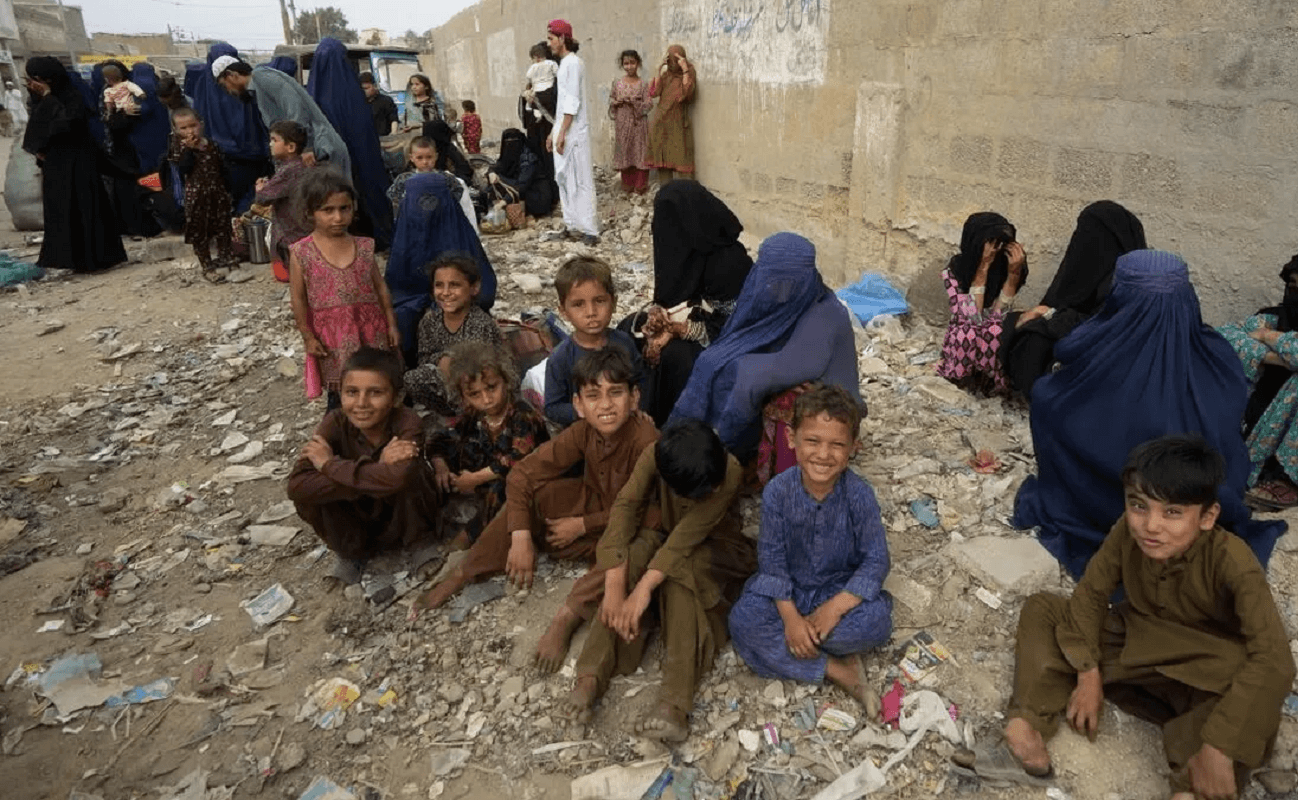Pakistan’s Deportation Plan
Pakistan has played host to millions of Afghan refugees for over four decades
Kamran Yousaf | 06 November 2023
The crackdown on what Pakistan calls illegal aliens is underway. October 31 was the deadline for all such foreigners living the country illegally to leave voluntarily or face eviction. Pakistan has repeatedly stated that its campaign is not targeted against a specific nationality, but admits that the policy happens to impact the Afghan nationals the most. There are over 4 million Afghans living in Pakistan, many for decades. But almost half of them are said to be undocumented. Over 200,000 Afghans have left the country so far. After the expiry of the deadline, Pakistani authorities launched a formal crackdown on such undocumented Afghans, rounding up hundreds in different parts of the country. Law enforcement agencies were authorised to detain foreigners having no legal means to stay in the country. They are being kept in what the government calls “holding centers” before their deportation.
Pakistan has played host to millions of Afghan refugees for over four decades. The first influx of refugees came after the former Soviet Union invaded Afghanistan. Pakistan at the time welcomed them with open hearts. Those refugee camps later served as a launching pad for the West and Pakistan to defeat the Soviet Union. Unlike Iran, Pakistan later allowed the refugees to settle in the country’s urban centres. Despite Soviet withdrawal, peace and stability eluded Afghanistan, meaning millions of Afghan refugees had no incentive to go back to their homeland.
Then came the second influx when the US invaded Afghanistan after the 9/11 attacks. Given the 2,600km long and porous border, it was always difficult for border security forces to stop movement of people. At some point, Pakistan accepted the fact that these millions of Afghans were now part of their society. But, still Pakistan was hoping for stability returning to the neighbouring country so that at least Afghans have the opportunity to return. They were expecting some semblance of stability to return after the US withdrawal. But the US withdrawal triggered another wave of refugees, though the number was not huge compared to the previous two occasions. Nevertheless, over 600,000 Afghans fled the Taliban rule. The only solace for Pakistani decision-makers was that the government in Kabul went into the hands of a group considered close to Islamabad. Pakistan was ready to shoulder the burden of refugees for the bigger strategic cause. However, it did not take a lot of time for Pakistani policymakers to realise that the new rulers of Afghanistan were no different from their predecessors. In fact, keeping in view the developments of the last few months, the Afghan Taliban government seemed more hostile than the Karazi and Ghani administrations.
At the heart of the trouble is the banned TTP which got emboldened after the Taliban’s return. Despite repeated demands, the Afghan Taliban were reluctant to act against the TTP. The situation has now come to a point where Pakistan is resorting to measures that otherwise may not have been contemplated. The move to deport all undocumented Afghans is a clear message to the rulers in Kabul: if you host our enemies don’t expect any favour from us. Publically, however, Pakistani officials have dispelled the impression that its policy to evict illegal migrants had anything to do with the TTP issue. One official recently told me that the decision to send back all undocumented Afghans was being considered for at least 6 months. But despite that explanation, it is evident that Pakistan is frustrated with the Afghan Taliban and a series of decisions including the one to deport Afghans living without legal documents reflect a shift in Islamabad’s policy. Anti-Pakistan sentiment is already high among the Afghans and the latest move would only add to the complicated relationship. While Pakistan is well within its rights to evict illegal foreigners, it must also take into account the serious implications.
The writer is a senior foreign affairs correspondent at The Express Tribune.
This article was originally published on The Express Tribune.
Views in this article are author’s own and do not necessarily reflect CGS policy.
